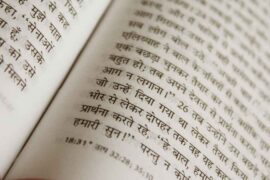As I approach my 20s, it seems appropriate to focus on a topic crucial to my development: literature. Literature serves as both a guide and a comrade in the maze of adolescence. As a kid navigating life’s challenges, I found consolation, inspiration, and profound knowledge in select novels. In this blog, I will provide a chosen collection of novels that grabbed my adolescent mind and left a lasting imprint on my worldview.
- To Kill a Mockingbird by Harper Lee (1960)
“To Kill a Mockingbird,” Harper Lee’s timeless masterpiece, is a moving examination of racial injustice and moral development. The story, set in the racially volatile American South, introduces us to Scout Finch, a young girl, and her father, Atticus Finch, a lawyer defending a black man wrongfully accused of rape. We see the terrible truths of prejudice and the power of empathy through Scout’s innocent eyes. This is a must-read for kids because it teaches them about compassion, courage, and the value of standing up for what is right.
- The Catcher in the Rye by J.D. Salinger (1951)
“The Catcher in the Rye” by J.D. Salinger is a literary masterpiece that speaks to the adolescent experience. Holden Caulfield, the protagonist, embodies adolescent anguish, rebellion, and the search for identity. As teenagers battle with the complexity of maturation, Salinger’s story serves as a mirror, reflecting the difficulties of transferring from innocence to experience. This work is an intriguing examination of the universal quest for one’s place in the world.
- The Harry Potter Series by J.K. Rowling (1997-2007)
Without the wonderful world of Harry Potter, also one of my favourites, no list for teenagers would be complete. J.K. Rowling’s series recounts the adventures of Harry Potter, a young wizard, as he battles the forces of darkness. These stories go beyond the mesmerizing spells and magical creatures to explore themes of friendship, loyalty, and the triumph of good over evil. The series not only stimulates the imagination, but it also teaches important life lessons about the power of unity and the perseverance required to fight hardship.
- The Perks of Being a Wallflower by Stephen Chbosky (1999)
“The Perks of Being a Wallflower” by Stephen Chbosky is a coming-of-age story that resonates powerfully with teens navigating the tumultuous waters of adolescence. The work tackles themes of friendship, love, mental health, and the difficulties of self-discovery through the protagonist, Charlie. The narrator’s honest and authentic voice makes this novel a riveting read for youngsters coping with concerns of identity and the complex emotions that come with growing up.
- 1984 by George Orwell (1949)
“1984,” George Orwell’s dystopian masterwork, serves as a thought-provoking investigation of power, control, and the effects of a dictatorship as youths embark on a voyage of self-discovery. The novel’s bleak vision of a surveillance society encourages readers to question authority and appreciate individual liberties. “1984” is more than simply a cautionary tale; it is also an effective tool for teaching critical thinking and motivating teens to question the status quo.
- The Book Thief by Markus Zusak (2005)
“The Book Thief” by Markus Zusak is a brilliantly written tale set against the backdrop of Nazi Germany. The story is told by Death and follows Liesel Meminger, a little girl with a knack for stealing books. The novel delves into the redemptive power of words and the human spirit’s perseverance in the face of hardship. This novel exemplifies the transformational power of literature and the impact it can have on individuals, even in the most difficult of circumstances.
- The Giver by Lois Lowry (1993)
“The Giver” by Lois Lowry is a thought-provoking dystopian story that questions the concept of a utopian society. The tale follows Jonas as he uncovers the reality about his seemingly ideal community in a world where emotions are controlled and decisions are chosen for individuals. “The Giver” encourages youngsters to consider the importance of individuality, free will, and embracing the entire range of human experience.
- “Matrix” by Lauren Groff (2021)
The historical novel “Matrix” by Lauren Groff brings readers to the 12th century and introduces them to the life of Marie de France, a woman navigating the difficulties of power, religion, and personal identity. The work is rich in atmospheric description, portraying medieval life vividly. Groff’s style is enthralling, and her examination of feminism, spirituality, and the search of one’s real calling make “Matrix” an engaging and thought-provoking read.
- “The Diary of a Young Girl” by Anne Frank (1947)
The diary of Anne Frank is a moving firsthand account of a Jewish girl’s life in hiding during the Holocaust. Anne’s musings on adolescence, love, and the human spirit, written with honesty and tenacity, appeal with youngsters. The diary not only gives historical context, but it also evokes empathy and meditation on the lasting significance of one person’s voice. Anne’s bravery in the face of adversity makes this a riveting read, underlining the value of liberty, tolerance, and standing up to injustice. “The Diary of a Young Girl” remains a vital and timeless narrative that leaves readers with a lasting impression.
- “No One Is Talking About This” by Patricia Lockwood (2021)
“No One Is Talking About This” by Patricia Lockwood is a one-of-a-kind and engrossing story that combines social media criticism with profound existential themes. Lockwood investigates the impact of technology on our lives and our sense of reality via the eyes of an unidentified protagonist embroiled in the turbulent realm of viral celebrity and online culture. The novel is both amusing and moving, providing a new viewpoint on the difficulties of living in an increasingly interconnected but isolating digital era. “No One Is Talking About This” is a literary accomplishment that prompts readers to consider the nature of our online existence.
Final Thoughts
Certain novels have the capacity to shape the minds and emotions of youngsters in the broad landscape of literature. The titles indicated above are companions that provide solace, provoke thought, and inspire personal progress.
As I mark turning 20, I encourage teenagers to start on their own literary travels. The books on this list are more than just suggestions; they are keys to unlocking the tremendous potential of the adolescent mind, providing a blueprint for navigating the intricacies of adolescence.
These selections stand as doors to many worlds in the literary quilt of recommended books for teenagers, enabling young minds to explore the complexity of identity, resilience, and the human spirit. Each book creates a narrative thread that resonates individually with adolescent experiences, from the historic depths of Anne Frank’s diary to the intriguing description of No One Is Talking About This.
Whether traversing the maze of adolescence, battling with cultural expectations, or embracing the beauty of other worlds, these works provide company as well as significant insights. These literary companions promise to be loyal leaders as youngsters embark on their reading journeys, promoting empathy, critical thinking, and a lifetime passion for the rich tapestry of human tales. Good luck with your reading!




